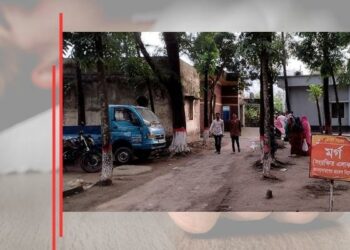Thoughts about the Income Tax Ordinance
At present, the country’s direct tax, or income tax, is governed by the Income Tax Ordinance of 1994. Income tax, value-added tax, customs, and additional duty are the primary revenue sources for the government. Every fiscal year, the government submits a budget to the parliament. The government also has a finance act in addition to the budget. The government formulates short- term economic plans and decisions using the finance act. Accordingly, amendments to the
income tax legislation, the VAT Act, and the customs and supplementary duty are made every year. The overall expenditure for the current fiscal year has been set at BDT603681 crore (US$71 billion), which is more than the previous fiscal year. This fund is being used for operational expenses, annual development programs, education, health, and defense, among other things. The total revenue collection, on the other hand, has been set at BDT392490 crore Income tax legislation, the VAT Act, and the customs and supplementary duty are made every year.
The overall expenditure for the current fiscal year has been set at BDT603681 crore (US$71 billion), which is more than the previous fiscal year. This fund is being used for operational expenses, annual development programs, education, health, and defense, among other things. The total revenue collection, on the other hand, has been set at BDT392490 crore (US$46 billion), with the National Board of Revenue raising the majority of this. Each segment of expenditure allocation and income collection has seen an increase. Bangladesh’s GDP rate remains small despite economic progress compared to other south Asian regional countries such as India, Nepal, and Pakistan. However, the existing income tax law is relatively ancient, enacted 36 years ago. It has now devolved into crude and complex regulation.
The overall expenditure for the current fiscal year has been set at BDT603681 crore (US$71 billion), which is more than the previous fiscal year.
The proportion of direct taxes and the tax GDP ratio in our country is smaller than indirect taxes. In today’s world, having a simple and business-friendly legal structure is critical.
At the same time, every government requires a wise taxation strategy to ensure continued development and promote an equity-based society. In light of these circumstances, policymakers have drafted the Income Tax Act of 2022. To replace the Income Tax Ordinance of 1994. Without a doubt, the demand for this initiative is probably inevitable.
When adopting the act, some factors must be examined, such as business friendliness, the ability to reduce citizens’ tax burdens, comprehension and execution, and ensuring an expeditionary tax net; discretionary authority of the officials should be at the bottom level. And there should be a safeguard and balancing for the taxpayers. So that, in no way there be harassment. In the case of corporate taxation, different strategy and rates may be suggested. A culture of corporate taxation, various approaches, and speeds may be recommended. A culture of tax payment may be encouraged from all levels of citizens.
The young generation and students may be included through proper education and training to develop a tax payment habit. Most importantly, the new act should restructure the sections and chapters with some translation. Instead, it should be a clever one that caters to the economy’s needs as a whole.
Sajeed Sahdeen Mazumder
ID:1911285630
Department of Accounting & Finance
School of Business & Economics
North South University






